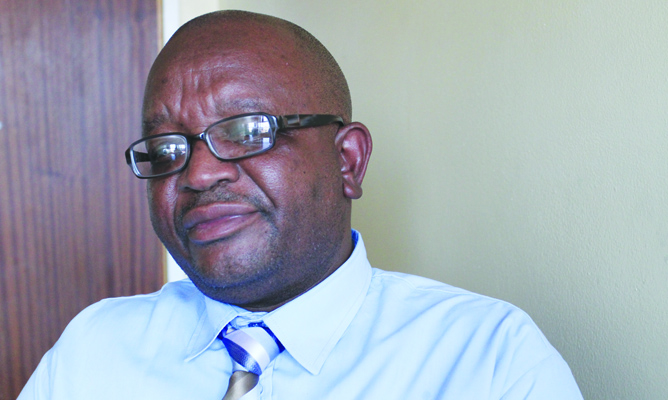
I know him as a leader of cross-border traders. The increasing number of cross-border traders and the mushrooming of flea markets, gives one an uneasy feeling — the sensation of sinking. The increasing numbers seem to point to a dying economy.
By Tapiwa Nyandoro
However, they are a manifestation of the indomitable spirit of the toiling masses.
A few months ago Killer Zivhu voiced his doubts on Zimbabwe Agenda for Sustainable Socio-Economic Transformation (ZimAsset) that made me sit up and notice. He felt the ZimAsset, as currently written with its emphasis on highly capital intensive increased extractive resources exploitation and beneficiation, would not deliver results in the short to medium term.
Apart from his cross-border trader credentials, he now wears a second hat as a local authority councillor in rural Chivi, Masvingo Province. He has offered his own unwritten version, of “Village” ZimAsset as a more realistic socio-economic transformation tool. He would want to start from the cell: the rural household and then move up to the village with the district next, with far less requirements for financial resources.
The strategy based on an agrarian revolution increasing yields in the low rainfall district sounds logical and there is empirical evidence to back it. Israel makes a good case study. Technology, irrigation and micro-finance are what are needed. Properly implemented, the project could see yields rise 10 to 20-fold, provided extension services, micro-finance and marketing are co-coordinated.
What prompted this article was Zivhu’s full four-page advertisement in the Press last Thursday. He was selling his concept. Gomana Village in Chivi District, from where the peasant hails, and according to the advertisement, “already exercising ‘Village ZimAsset”, will be launching Village ZimAsset this Saturday.

- Chamisa under fire over US$120K donation
- Mavhunga puts DeMbare into Chibuku quarterfinals
- Pension funds bet on Cabora Bassa oilfields
- Councils defy govt fire tender directive
Keep Reading
Their busy schedules permitting, Vice-President Emmerson Mnangagwa, who is in charge of economic transformation, the ministers of Finance, Economic development, Agriculture and SMEs should grace the occasion. Zivhu’s strategy, with some minor modifications, may be the economic lifeline the government needs.
Going over his advertisement, which is also self-promotional, the funding of it raises eyebrows. Could it all be from his pocket? Could the organisation, not usually known for its intelligence, have chipped in? The imploding national economy has long been a national security threat. There is need to find complimentary strategies to ZimAsset that could create decent jobs in the short to medium term, as soon as possible, and Zivhu’s scepticism and bold new strategy may be the way to go.
I hope in due course, over a pot of mahewu (traditional drink) and roasted maize on the cob, Zivhu will find time to discuss his vision and project with one Willy Foote, who founded Root Capital (Root) in 1999. According to The Economist (March 14 2015), Root’s business “is lending to owners of small farms in poor countries”.
These owners of small farms, who are ignored by mainstream banks, the weekly noted, “face multiple hardships including land of poor quality [such as in Chivi], a lack of infrastructure to get their output to market and the constant threat of being wiped out by extreme weather”, such as is being predicted for the incoming summer season. “The lack of access to credit for working capital and investment”, it further notes “makes a bad situation worse”.
The founder of the not-for-profit organisation Root quit his job as a Wall Street analyst, after noting that micro-credit outfits had proved that the poorest of the poor can be perfectly responsible borrowers. Root and a few other specialist lenders are showing the same is true of bigger loans to groups (a critical point) of subsistence farmers. The loans, which come with free advice and training (another critical point) in how best to use the money, are helping farmers increase their productivity (yields) and so boost their incomes.
The money also protects farmers from having to sell their wares cheaply to the first available buyer, a third critical point. Half of the loan recipients have seen their incomes increase by 20% per year; while for nearly a third of them income has risen by over 50%.
On the marketing side — a fourth critical point — Root has capitalised on the growing enthusiasm for sustainable farmed organic goods among consumers in the rich world, thanks to the certification of origin it offers. Most Root borrowers are existing co-operatives hoping to join the supply chains of major food distributors such as Unilever, Starbucks and Whole Foods Market.
Root is funded through grants, and hopes to stay funded that way, leaving it to commercial lenders to scale up the business of lending to smallholder exporters, such as the Chivi district of tomorrow. Most of Root’s loans of $350 000 or more are profitable at interest rates of no more than 13% per year. The key, and fifth critical point, is to have some sort of collective sales organisation, specialising in one or two crops, for economies of scale, as the borrower.
Going forward, all that is needed is for Vice-President Mnangagwa, in charge of economic transformation, to invite the likes of Root to the country, ensure a grant of $20 million — which could easily be matched by the NGOs — is disbursed to the likes of Root for its local operations. Chivi and other districts, which will constitute themselves into focused co-operatives, may then be on their way out of poverty as the revolving fund takes root.











